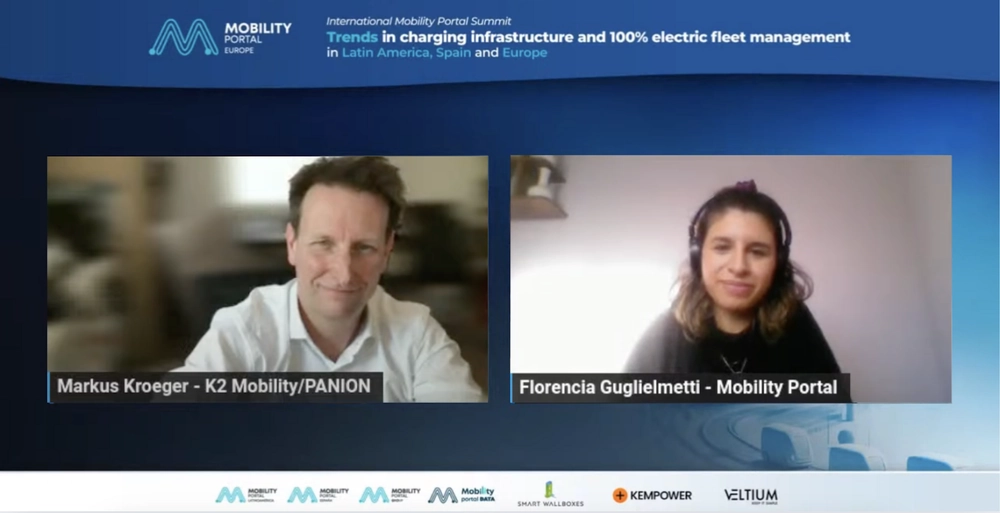More and more companies are considering “opening their doors” and allowing their suppliers, subcontractors, partners, and others to use the electric vehicle charging infrastructure deployed at their facilities.
How? By offering energy at a “premium price” to quickly recover their investments.
According to Markus Kröger, founder of K2 Mobility, this is the solution they found to recover the expenditure made on such a station.
“The investment made at such a site is significant, while the utilization is quite low, as a fleet needs to be on the road to generate revenue,” Kröger points out.
The interesting aspect is that the third party benefits by not having to spend money on their own hub, which would involve not only the installation but also the capacity of the electrical network, transformers, and substations.
“This is a trend for the future: sharing and leveraging existing private-owned charging infrastructure among logistics companies to accelerate the expansion of electric transport,” emphasizes Kröger.
However, investment in the particular station is necessary, as, according to the expert, the public charging network for heavy electric vehicles is not growing quickly enough and CPOs are rarely offering reservations. .
“Therefore, supply at the operations base will play a significant role in the coming years,” he asserts.
For this, it is crucial that companies are confident that their fleet needs are covered by their or their neighbour’s facility, both in terms of time and logistical planning.
In this line, another challenge that distinguishes the specialist in this transition, and for which K2 Mobility has the solution, is the lack of synchronization between trucks and charging points when drivers are stuck in traffic.
The main problem arises when users reserve a spot at the station and, not arriving on time for their turn, lose their place and must wait for the new occupant to release it.

“As a fleet operator, it is essential to have reliable processes and effective synchronization capability,” notes the company’s founder.
And he emphasizes: “It is crucial to ensure that, upon arrival at the facility, the necessary charging can be accessed, which implies that the station is informed about the vehicle’s location and estimated time of arrival, and can adapt to this.”
To this end, K2 Mobility offers PANION, an intelligent software with data-based solutions that simplify the complexity in planning and managing electric transport fleets.
In this framework, tight tour schedules and high utilization of truck or bus assets are essential.
PANION is connected to the real-time transport control system to know the travel plan of each vehicle, including departure and arrival times, the route with its individual stops, changes in payload, among other aspects.
As it also connects to the refueling infrastructure and network.
With all this data, the software assigns each vehicle a specific place at a charging point, for a specified time, and communicates it to the driver or relevant party.
How does PANION address the traffic problem? By tracking the truck on the road through telemetry signals, allowing the system to calculate the estimated time of arrival, as well as the battery capacity status.
All of this will incentivize companies to adopt electric vehicles and meet the European Union’s goals, which demand a 45 per cent reduction in CO2 emissions by 2030, 65 per cent by 2035, and 90 per cent by 2040.
Moreover, Kröger mentions one last point: “The only way to convince logistics companies to switch to electric trucks is the Total Cost of Ownership (TCO).”
In this regard, the founder of K2 Mobility mentions that in many cases, e.g. in Nordic countries, the TCO is cheaper for eTruck transport than for diesel already today.
According to a report by the International Transport Forum, zero-emission heavy vehicles are expected to be cost-competitive with internal combustion ones before 2040.
This shows that, although the initial purchasing price of an eCar is higher, the associated expenses, such as toll exemptions and maintenance, among others, in the long term are more economical than those of a diesel vehicle.
“TCO is already reaching parity in several countries and sustainable energy will also become cheaper over time, so I am very optimistic that we will achieve the goals,” Markus Kröger emphasizes.
In this context, he considers: “Integrated dynamic planning of charging and reservations will be crucial.”








